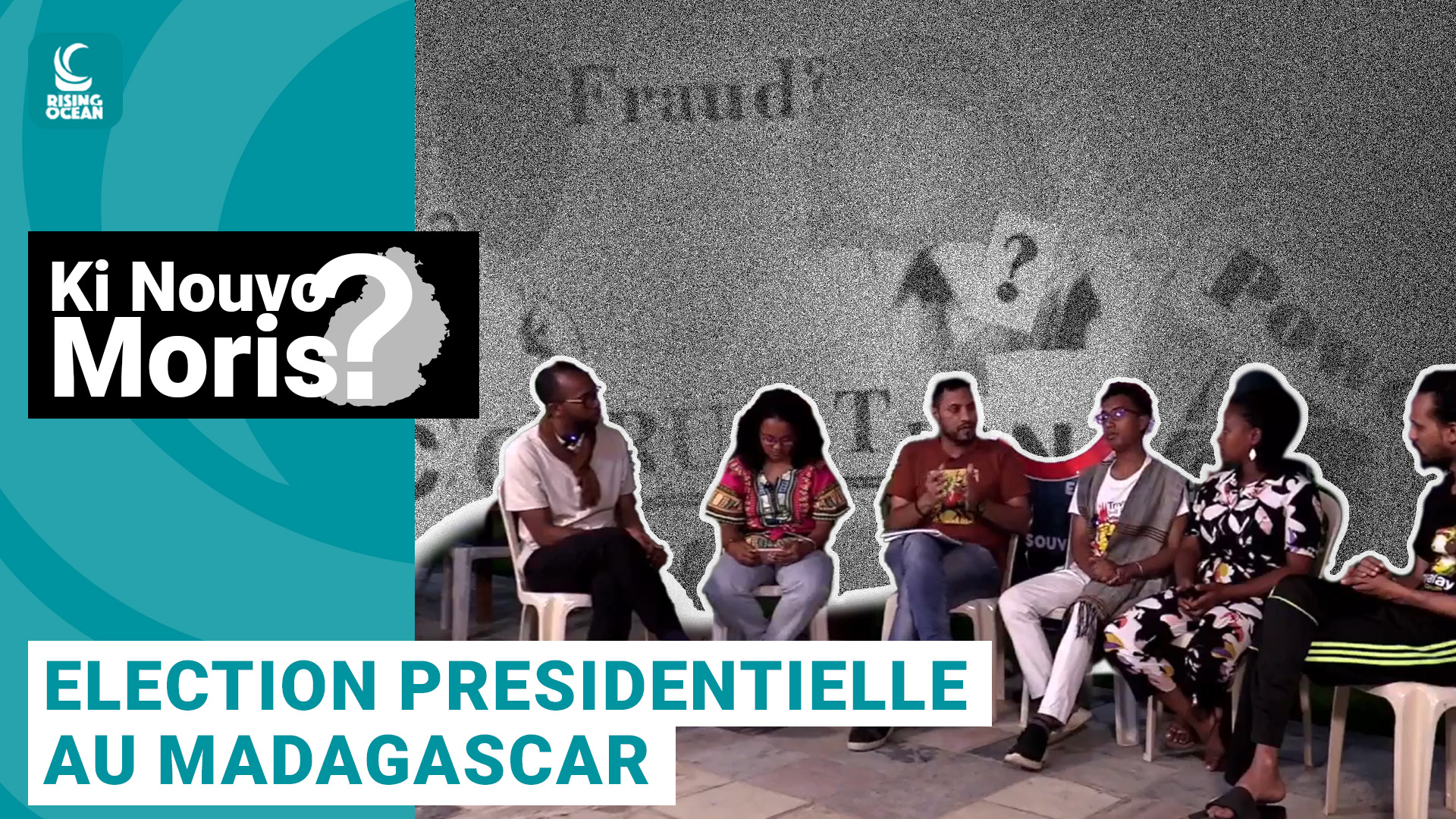The ki nouvo moris set of October 30, 2023, was held as part of the Indian School of Political Ecology 2023.The set was mainly composed of Malagasy activists such as Ideal, Rani, Dina and Ony. The topics that will be addressed are the holding of the Malagasy presidential elections as well as the electoral system. In addition, the current situation of Madagascar will also be discussed. The debate was co-hosted by Blackwell Louis and Ashvin Gudday.
What is your assessment of the outgoing president?
The analysis of the outgoing president’s mandate is unfortunately not praise, declares the activist Idéal. The result of his 5 years in power is really unsatisfactory given that Madagascar has not really advanced.
“There is still famine, in terms of infrastructure it still leaves something to be desired. Even when it comes to water and electricity supplies, many provinces are without them and those that do have access to them are cut off daily.”
This outgoing government can be criticized easily but nevertheless, it has also experienced a moment of exceptional crisis such as Covid-19 and this regime has somehow tried to help the weakest by offering support and social aid. However, this was not enough to legitimize this government among the population because there was interference.
“This government was not really in the totality of democracy, there were no consultation with other political, ecological, and social actors. Indeed, to be in democracy, the president had to consult people present on the ground in order to resolve certain crises. This is where the dissatisfaction of the Malagasy comes from.”
Dina, for her part, mentions that the outgoing regime had a very relevant but unfortunately not effective presidential program. In his election manifesto, the President made several promises to the Malagasy people, and nothing was done in accordance to try to make them happen. In fact, none of these 13 promises were respected, and because of this, the outgoing regime is criticized by the inhabitants of different provinces, says Dina.
The inhabitants of the big island are not satisfied with the steps taken by the regime during its last four years in power, declares Rani.
« It is thanks to the civil society of Madagascar which has set up a common system called the citizen barometer, to judge that even if the program seemed relevant, it is very ineffective in the realization of its various electoral promises. As far as ecology and climate change are concerned, this leaves us with a lot to review. There is a certain failure at the environmental level because for a few years now, Madagascar has not escaped climate change because there are more and more forest fires but also food crises linked to climate change. A failure because one of the presidential promises made concerns the and four years later, we find ourselves with the same problems and some of its empire. »
However, in terms of infrastructure, the government has built several schools and hospitals. It is a fact that the government has not been able to resolve the problems of the Malagasy people, to improve their daily lives.
What about the situation of young people?
The situation of young people is very worrying because many of them are in the middle of the labor market, and they are unable to find work in this economy. Many young people don’t know what to do and where to go to look for a job. This is the same situation for those who want to continue their studies, because it is difficult to find schools to join. The situation of young people is more than worrisome because they do not know how to succeed in both their professional and personal lives.
« The situation is like this in Madagascar because the government does not think about the well-being of the population, especially the youth who constitute more than half of the national population. »
Undeniably, more than half of the island’s inhabitants are under 25 years old. It is because of regimes like the one in power that the people suffer because they only think of their own interests, declares Ony.
For Rani, it is necessary to guarantee rights to young people and it is not normal that with this area of land, that young Malagasy people are not able to feed themselves properly and especially that they do not have work. In Madagascar, the population is very hard-working, many young Malagasy people are extremely brilliant, they just need to be given the opportunity to learn and improve, says Rani. The question is: Does the government, which has the capacity and the opportunity to distribute its resources to young people, to the population, do so? Unfortunately, the answer is no.
As far as the education system is concerned in Madagascar, although several schools and universities have been built to educate young Malagasy people, there are still shortcomings in the sense that the education transmitted is not adapted to the Malagasy population. The curriculum as well as the mode of teaching has been copied from the occidental which is not in favor of the past and the way of life of the Malagasy, makes Dina come out.
As a matter of fact, there are several things to review in the way institutions are managed in Madagascar because there is a form of interference in the way they are administered by the country’s leaders. Of course, there has been progress in terms of infrastructure, but in other areas there is still a long way to go.
Full debate here:


